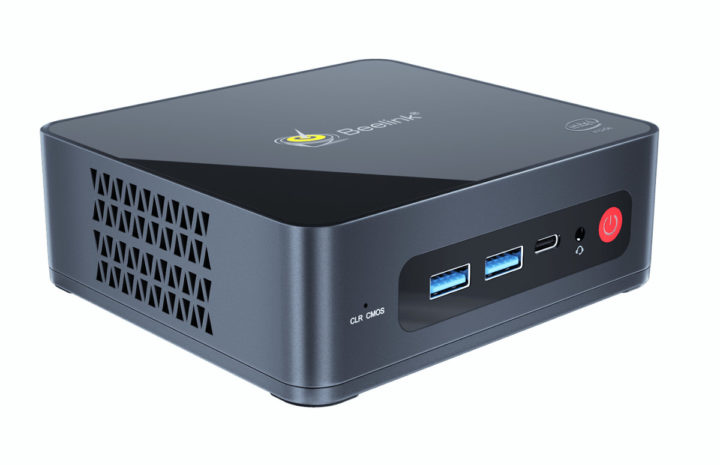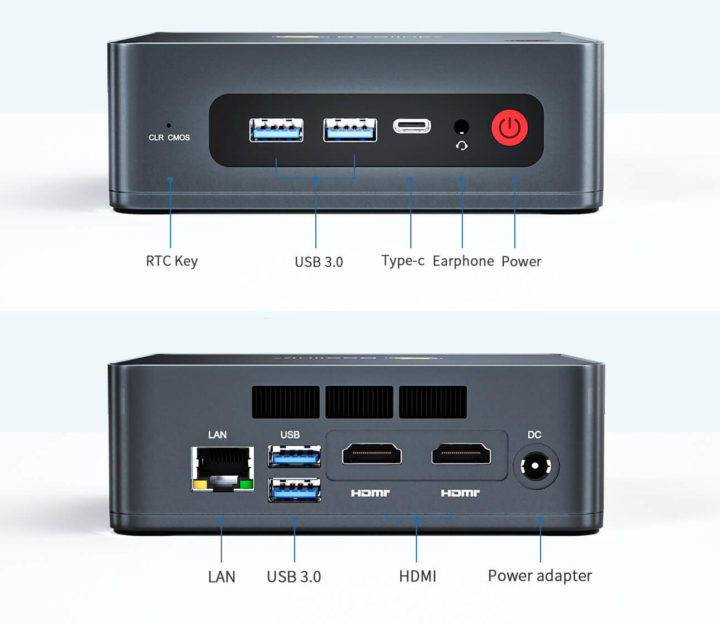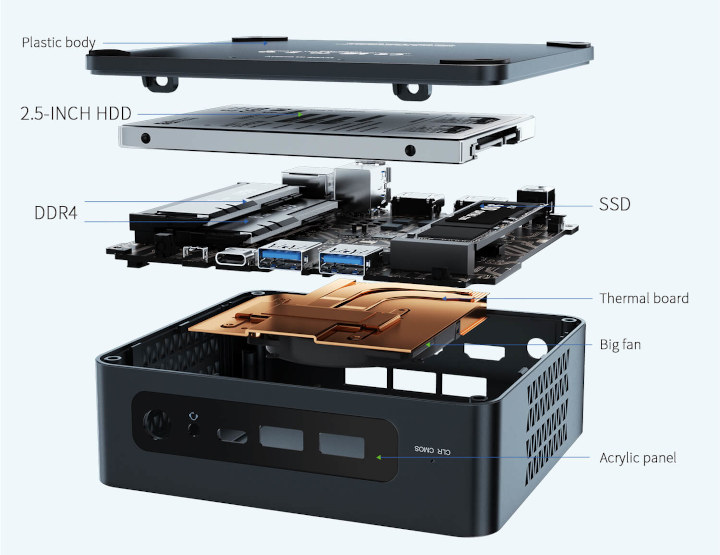Beelink U59 is a Jasper Lake mini PC based on an Intel Celeron N5095 15W quad-core processor that ships with 8GB RAM and a 256 GB M.2 SSD for $279+ on Amazon or Banggood, or $349+ with 16GB RAM and a 512 GB SSD.
The mini PC offers two 4K HDMI 2.0 ports, a Gigabit Ethernet port, WiFi 5, as well as four USB 3.0 ports, and supports one 2.5-inch SATA drive up to 7mm thick.
- SoC – Intel Celeron N5095 quad-core Jasper Lake processor @ 2.0GHz / 2.9GHz (Turbo) with 4MB cache, 16EU Intel UHD Graphics; 15W TDP
- System MEmory – 8GB or 16GB DDR4 2,933 MHz
- Storage – 256GB or 512GB M.2 SATA SSD with up to 500MB/s read speed. Support for 2.5-inch SATA drives (7mm thick max).
- Video Output – 2x HDMI 2.0 ports up to 4Kp60
- Audio – 3.5mm audio (headphone & microphone) jack, digital audio via HDMI
- Connectivity
- Gigabit Ethernet RJ45 port.
- Dual-band 802.11 b/g/n/ac WiFi 5 and Bluetooth 4.0
- USB – 4x USB 3.0 ports, 1x USB-C port
- Misc – Power button and LED, RTC button (CLR CMOS); BIOS/UEFI features: WOL, Auto power on
- Power Supply – 12V/3A DC jack
- Dimensions – 124 x 113 x 42 mm (Plastic enclosure)
- Weight – 295 grams
The mini PC ships with Windows 10 Pro and supports Ubuntu Linux. Accessories include 20cm and 1m HDMI cables, the power adapter, and a wall-mount bracket.
There’s no information about the USB-C port function (e.g. DisplayPort Alt Mode), we don’t know if there’s a TPM 2.0 security chip for Windows 11 compatibility, and cooling is achieved with a thermal board and a “quiet big fan” for “efficient heat dissipation”.
Beelink explains the design is similar to the GK55 mini PC powered by Celeron J4125 Gemini Lake processor, but with only one Ethernet port instead of two, and U59 comes with the exact same accessories. It looks like the long promised Jasper Lake devices are here, after various delays including the Newsmay AC8 that was supposed to start mass-production in mid-May 2021, and the Chuwi Hi10 Go tablet that has shipped since August. We’ll soon find out how it performs as Ian should get a sample for his usual review with Windows and Ubuntu.
[Update: This post was initially published on the 17th of September, and updated on October 13 with commercial availability]

Jean-Luc started CNX Software in 2010 as a part-time endeavor, before quitting his job as a software engineering manager, and starting to write daily news, and reviews full time later in 2011.
Support CNX Software! Donate via cryptocurrencies, become a Patron on Patreon, or purchase goods on Amazon or Aliexpress







